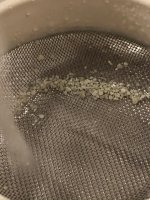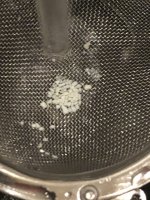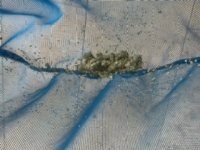SK Sharma
New Member



My system is a two water heater, gas furnace, 60 gallon AO Smith commercial with a hot water recirculating loop tied in with a timer by TACO. We never had shut the circulating a loop off in the 5 1/2 years that we’ve been in this house. And has been running continuously during that time. (I know: in hindsight big mistake.)
We have been having slow flow of water in the fixtures and build up of scale throughout the house increasingly for the past six months, having called in handyman every now and then to help troubleshoot the fixture valves and or aerators in the house.
In the end, the water became a trickle mostly on the hot water side, to which I eventually got a water mineral test or hardness test. One company came in and said it was 12 grain/gal which I thought sounded awfully high for this area. Got a second opinion that rated the hardness around 6-7. As a side note, I had only flushed the hot water heaters (both of them) once, last year for the first time which seem to help for a little while.
So I purchased a water softener system 2 weeks ago—I can give the details if you want—but it’s from a local company here that has a pretty good reputation, and they also flushed and drained both water heaters at the time. The comment that they made was that there’s too much buildup in the water heaters and could only do so much given a limited time they had and the small outflow valve of the water heaters.
I had another company come out today and for the first hour and a half and they continued to see constant large calcium/mineral chunks and the conclusion was that new water heaters were in order.In the end today I purchased two new brand new A.O. Smith water heaters, installed professionally, and again they they spent all afternoon trying to declog the shower hot water line. Seems is still way too much calcium and scale within the pipes. They blow out the pipes hot water, reassemble the valve, turn the shower back on, and it clogs right back up within 3 to 5 minutes. It is clogging the bathroom shower fixture mixing valve, to the point where there is no hot water. So these are my questions– – what’s the solution here? Is there a way to run a wire into the hot water lines to break up the suspected calcium in the walls of the pipes? Acid flush of the pipes?
And Shouldn’t the water softening system at some point rid me free and clear of continued calcium scale buildup?
